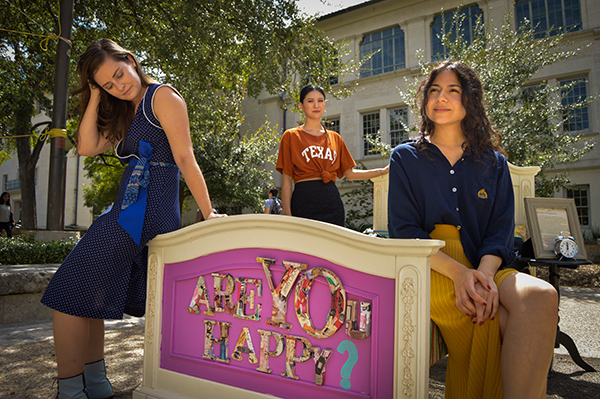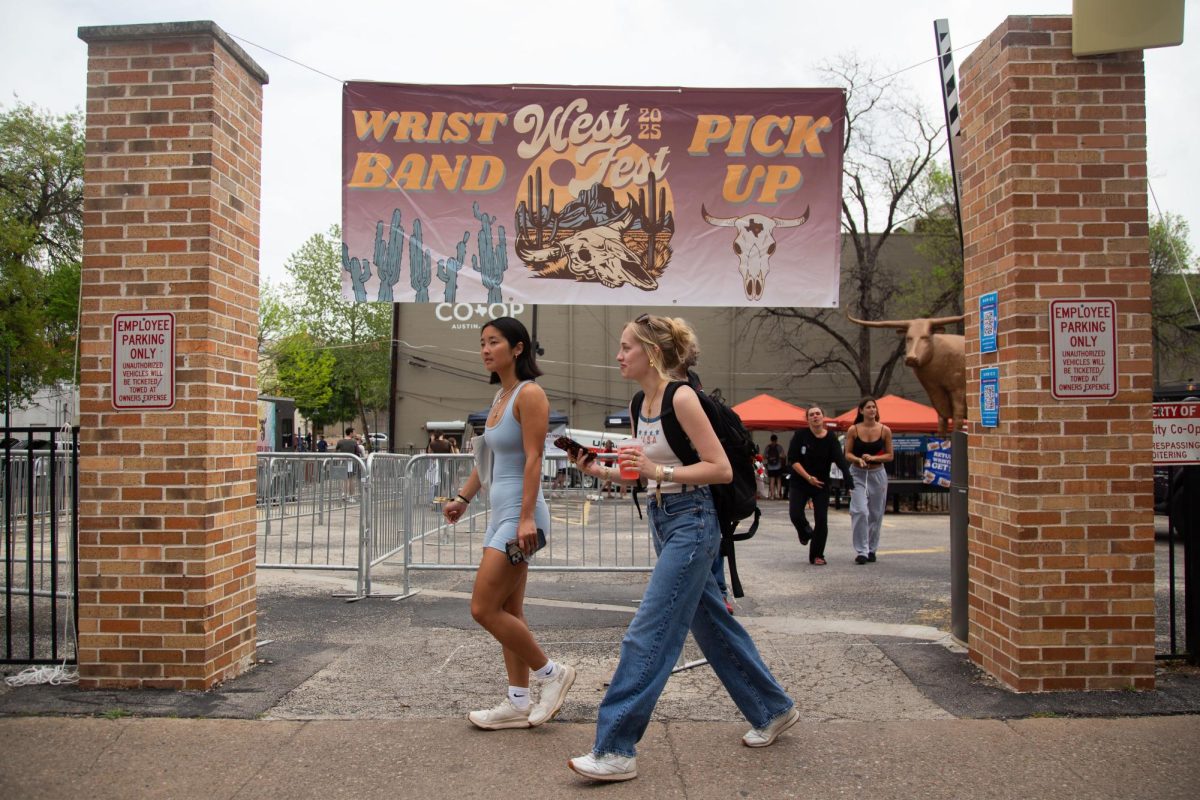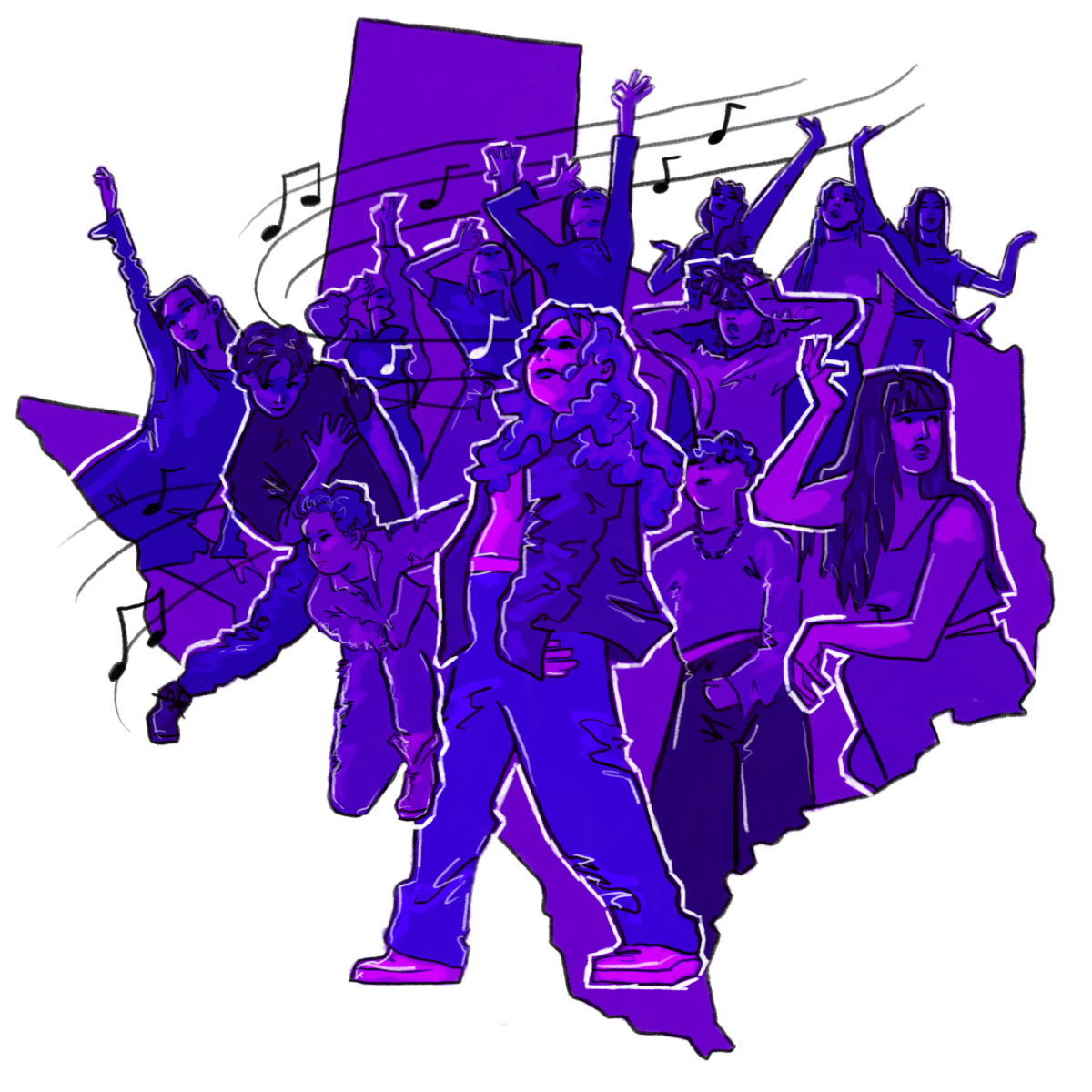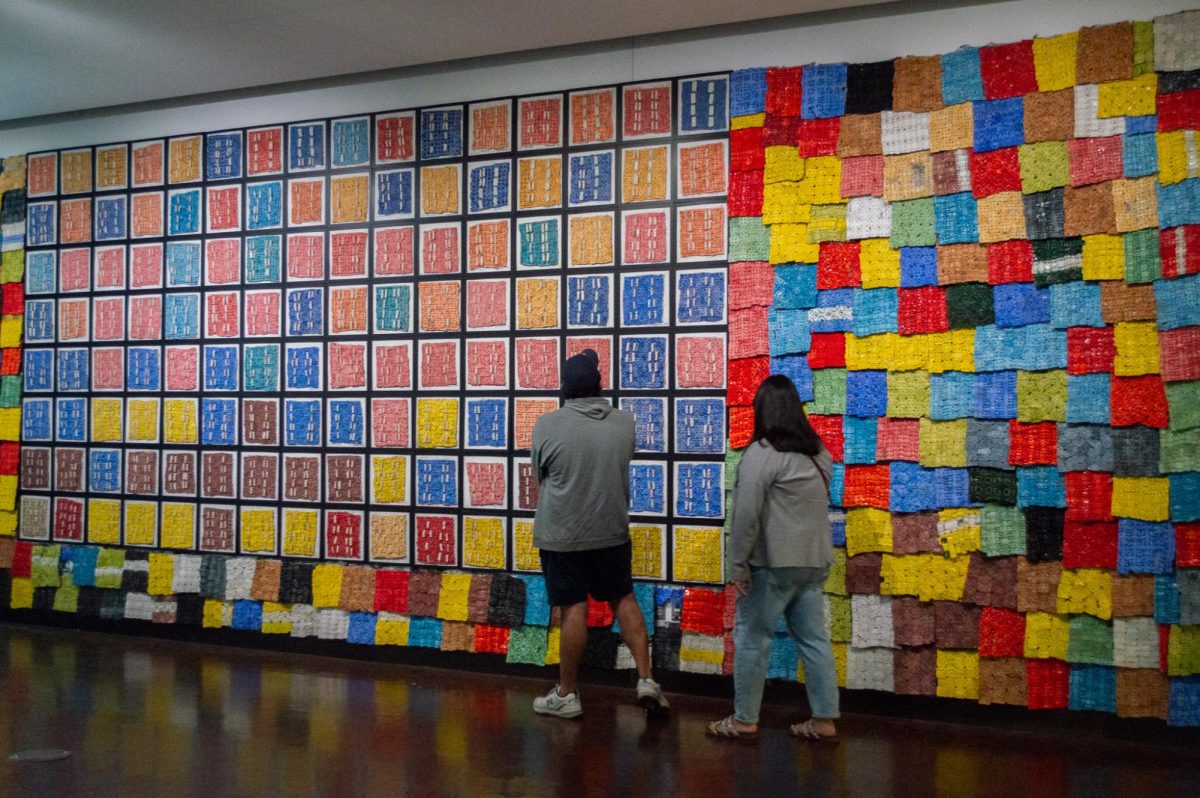An unconventional form of student protest has popped up around the Forty Acres this fall. From placing a bed in the middle of West Mall to hanging fabrics from trees above the turtle pond, UT organization Fashion Anonymous has mastered the art of subtle advocacy.
Through art installations around campus, Fashion Anonymous aims to educate students about fast fashion production. As defined by Merriam-Webster, fast fashion is “an approach to the design, creation, and marketing of clothing fashions that emphasizes making fashion trends quickly and cheaply available to consumers.”
The organization displays the lack of sustainability in the process by creating interactive exhibits that bring attention to the major factors contributing to the problem, ranging from the dye industry’s pollution to the unethical labor practices in manufacturing.
“(The exhibits) are meant to be touched and walked through,” Fashion Anonymous President Ashlee Bushee said. “The sewing exhibit has a QR code that links to a soundtrack you can listen to, sit and get the experience of what it would sound like to be in a hot and noisy garment factory.”
Bushee first became interested in sustainability in fashion after learning about the negative effects of the industry through a research project as an undergraduate.
“As soon as I learned about (sustainability in fashion), I made a mission to quit buying clothes,” Bushee said. “ I learned how to sew (and) committed to thrifting. The first thing I learned about was the denim industry and the pollution from jeans, so I haven’t bought a new pair of jeans in, like, 10 years.”
When Bushee came to UT to pursue her master’s degree, she was encouraged by a professor to create a fashion sustainability organization. Soon after, with help from other students, she started Fashion Anonymous to engage and educate the UT community about the problems of fast fashion.
With the help of students who are passionate about the same cause, ideas began to evolve into tangible displays. Sustainable methods were used in every step of the process.
“All the plaques and paper we use are made out of seed paper, which you can go plant,” said Anai Moreno, public relations senior and public relations director for the organization.
Every aspect of creating the installations was carefully considered with the idea of sustainability in mind, Bushee said.
“We worked as hard as we could to source all of our materials from Austin Creative Reuse or Habitat for Humanity,” Bushee said. “We felt a conflict in building something to address consumption issues by buying new things.”
Bushee said people use overconsumption as a coping mechanism because they aren’t truly happy. The installations ask students to reflect on their own consumption, and written on the front of a piece is “Are you happy?”
Beyond the exhibits, Fashion Anonymous plans to maintain its presence on campus. Weekly events, such as clothing exchanges and movie screenings, invite students to repurpose their old clothing and learn more about fashion sustainability in an immersive way.
“We’re inviting people into each exhibit in their own time so that you’re not having to digest all of this information at one time,” Bushee said. “We call it a quiet version of activism.”





















